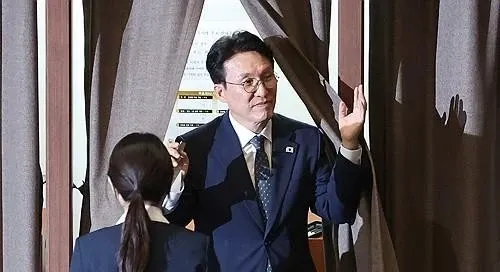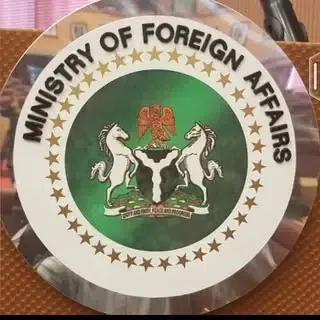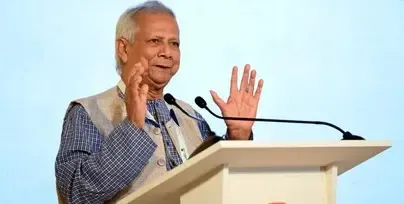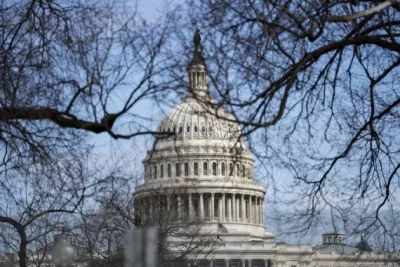Did South Korea's National Assembly Approve PM Nominee Kim Min-seok?

Synopsis
Key Takeaways
- Kim Min-seok confirmed as Prime Minister with a vote of 173-3.
- Opposition party PPP boycotted the vote over allegations.
- Legislative actions include revisions to the Commercial Act.
- Political motives behind allegations are questioned.
- Future implications for governance and accountability in South Korea.
Seoul, July 3 (NationPress) The National Assembly of South Korea officially approved President Lee Jae Myung's selection for the prime minister position, despite a complete boycott from the main opposition party, the People Power Party (PPP), due to serious allegations concerning his wealth and family background.
The confirmation motion for Kim Min-seok was passed with a vote tally of 173-3, alongside three invalid ballots during a plenary session. This decision was made 29 days following President Lee's nomination of Kim, who has served four terms as a lawmaker for the ruling Democratic Party (DP).
Only members of the DP, which enjoys a parliamentary majority, and several smaller parties took part in the voting process.
In South Korea, the position of prime minister is unique in that it requires parliamentary approval.
The DP previously indicated it would proceed with the confirmation regardless of the PPP's objections, while the PPP has called for Kim's withdrawal, labeling him an unfit candidate.
During the session, the Assembly also ratified an update to the Commercial Act, which broadens the fiduciary responsibilities of corporate board members to encompass all shareholders. Both parties had previously clashed over a rule limiting the voting rights of the largest shareholder to 3 percent during auditor selections but reached an agreement to vote on the bill after revising the rule.
Additionally, a proposed amendment to the Martial Law Act that prohibits military and police entry into the National Assembly is anticipated during this session, as reported by Yonhap news agency.
Earlier, on June 24, Kim Min-seok faced two days of confirmation hearings, as the main opposition party reiterated its demand for his withdrawal due to allegations regarding his wealth and familial connections.
Since his nomination by President Lee Jae Myung, Kim has faced intensified scrutiny over his past conviction for accepting illegal political donations, a significant increase in his assets over the last five years, his son's college admissions, and his previous studies at Tsinghua University in China, among other matters.
While the People Power Party has insisted on his withdrawal, the ruling Democratic Party has characterized these allegations as politically motivated attacks and has staunchly defended their nominee.










